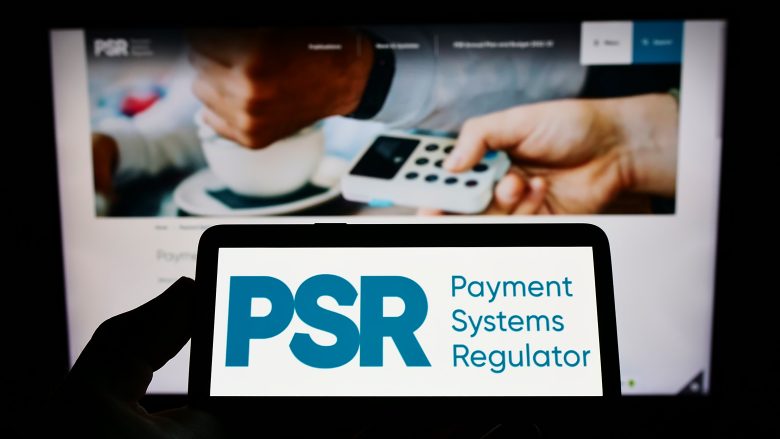The Payment Systems Regulator (PSR) published an interim report on their market review of card scheme and processing fees, particularly focusing on the dominance of Mastercard and Visa. This report, a comprehensive examination of the complex financial network that underpins everyday transactions, laid bare the substantial impact these fees have on businesses and consumers alike.
At the heart of the matter lies a fundamental imbalance. Mastercard and Visa, titans of the industry, hold a near-monopoly, processing a staggering 95% of UK card payments. The PSR report identifies a critical issue: the fees charged by these schemes to acquirers, the middlemen who handle payments for merchants, have risen dramatically. This concerning trend has no clear correlation to changes in transaction volume, value, or mix. The stark reality is that UK businesses are now estimated to be paying an additional £250 million annually due solely to these fee hikes. This financial burden, inevitably, trickles down to consumers, impacting the prices of everyday goods and services.

The PSR’s findings paint a concerning picture of a market lacking genuine competition. The report highlights several key points that solidify Mastercard and Visa’s unwavering market power. Firstly, there is a scarcity of viable alternatives for core scheme and processing services. Merchants are essentially locked into the system dictated by these two giants. Secondly, the barriers to entry for potential new players are significant, effectively creating a moat around Mastercard and Visa’s dominance. Existing alternatives, while present, fail to pose a credible threat in the foreseeable future. Finally, the report sheds light on the precarious position of acquirers. Caught in the middle, these institutions have limited leverage when it comes to negotiating fee reductions with Mastercard and Visa.
The pricing and profitability concerns raised by the PSR are equally alarming. The report exposes a stark reality – fees have skyrocketed by over 30% in real terms over the past five years. While Mastercard and Visa have undeniably seen a significant increase in revenue, the PSR acknowledges that there is insufficient data to definitively conclude whether these prices or profits are excessively high. However, the evidence leans heavily towards profit margins exceeding what would be expected in a truly competitive market.
Adding fuel to the fire of concern are the issues surrounding transparency and complexity. Acquirers, the bridge between card schemes and merchants, have consistently reported receiving complex and incomplete information regarding the fees they are charged. This lack of transparency creates a significant challenge for businesses, especially for small and medium-sized enterprises (SMEs). SMEs, often lacking dedicated financial resources, struggle to understand and manage these often-opaque costs, hindering their ability to make informed decisions and potentially hindering their growth. The report meticulously details these issues, pinpointing specific concerns like the overwhelming complexity of billing information and the existence of “behavioral fees” – fees intended to incentivize specific merchant behavior that, due to a lack of clear data, cannot be accurately passed on.
The PSR, however, doesn’t paint a picture of complete despair. The report also outlines several potential remedies to address these concerns and create a more equitable landscape. These remedies include:
1. Regulatory Financial Reporting: A mandate for more detailed and accurate reporting of profits earned from UK businesses by the card schemes. This increased transparency would allow for a more informed understanding of the true cost of processing transactions.
2. Justification for Price Increases: Measures requiring card schemes to justify and provide evidence for any future price increases or the introduction of new service fees. This would help ensure that any price hikes are truly necessary and reflect changes in the market.
3. Improved Transparency: Initiatives to enhance the quality of information available to acquirers and merchants. This includes simplifying billing information and providing clearer explanations of complex fees like “behavioral fees.”
The PSR report goes beyond simply addressing the immediate concerns. They recognize the importance of fostering competition in the long term. This vision is embodied in their focus on Open Banking. Open Banking refers to a set of regulations that allow third-party providers to access customer banking information with their consent. This technology paves the way for the development of alternative payment methods, particularly account-to-account payments. The PSR sees Open Banking as a long-term strategy that could empower merchants with greater choice and potentially lower costs for retail payments.
The PSR’s interim report is a clarion call for change. It sheds light on the challenges within the UK’s card payment system, emphasizing the urgent need for increased competition, transparency, and regulatory oversight. The proposed remedies and focus on Open Banking offer a roadmap towards a more balanced and competitive market. As the consultation process unfolds, stakeholders’ feedback will be crucial in shaping the final recommendations and ensuring a fairer payment ecosystem for all – businesses, consumers, and the financial institutions that serve them.




